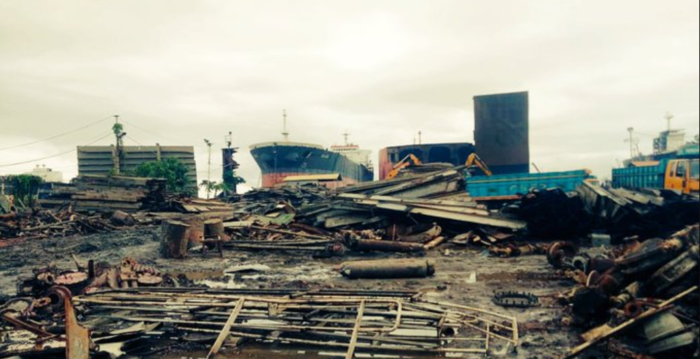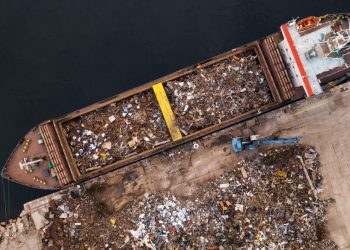Five leading environmental organizations issued a report expressing their concerns over EU’s intent to allow the exportation of end-of-life vessels to South Asia. In particular, the report suggests that the EU could violate its own laws and international treaty agreements if it decides to allow the exportation of end-of-life vessels to South Asia.
Namely, the Basel Action Network (BAN), the European Environmental Bureau (EEB), Greenpeace, and the NGO Shipbreaking Platform, warn that the European Union’s legislation allowing the export of toxic ships to developing countries, violates Member States’ obligations under the Basel Convention and is in contradiction with the EU’s new strategic economic and environmental policy initiatives.
To remind, the Basel Ban Amendment prohibits developed nations from sending hazardous waste, including defunct ships – to developing nations. This outright ban entered into effect in December 2019, and its application is limited to certain Basel Ban signatory nations, including EU member states.
By allowing the breaking of European vessels in the Global South, Europe is not only exporting hazardous waste and threatening people’s health in developing countries, but also contradicting its own ambition to boost the domestic supply of secondary raw materials – as set out in its circular economy action plan.
The EU can’t have it both ways. They cannot project that they promote a new way of thinking with the European Green Deal and prevent exports of hazardous wastes to developing countries, while seeking to bend their existing legal obligations to enable the shipping industry to do just that.
Overall, industry insiders have produced a number of responses to these news. Many of them are highlighting that regulation associated with ship recycling has been so far more complicated rather than effective.
For example, IHM and Ship Recycling services expert, Henning Gramann expressed his concern over these recent developments, commenting on Linkedin the following:
I really wonder what happened. First the EU-Ship Recycling Regulation (EU-SRR) was promoted by these NGOs and Hong Kong Convention has never been good enough for them. Now, 7 years later even EU-SRR is heavily critiziced. Do they want to keep ship recycling unregulated entirely, or create a monopoly and all ships should be recycled in Europe? Do they fear that EU will find a solution to authorize compliant ship recycling yards even though they are located in non-OECD countries despite Basel Ban Amendment? Or are they simply looking for funding when the world tries to deal with a serious pandemic?































































